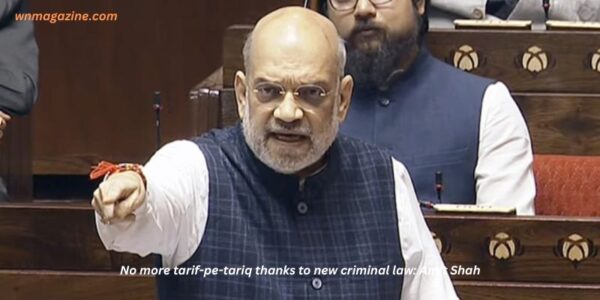No more tarif-pe-tariq thanks to new criminal law: Amit Shah
2 min read
No more tarif-pe-tariq thanks to new criminal law: Amit Shah
The proposed trio of laws, set to revamp the nation’s criminal justice system, aim to eliminate prolonged trials and ensure swift access to justice, announced Home Minister Shah in Amit Shah the Lok Sabha.
Shah argued that the existing Indian Penal Code (IPC), Indian Evidence Act, and Code of Criminal Procedure (CrPC) originated from colonial times, prioritizing punishment over justice. Budgetary and scheduling constraints have significantly impeded the delivery of justice, with blame shifting between the police, courts, and government.
Shah emphasized that financial constraints pose the greatest hurdle to justice for the poor. The new laws focus on a human-centric approach, prioritizing justice over penalties. The Lok Sabha later passed these bills, replacing outdated colonial-era criminal laws.
Also Read: wellhealthorganic vitamin b12
According to the Home Minister, the initial investigation must conclude within 14 days, and a formal complaint must be filed within three days. The charge sheet filing cannot extend beyond 180 days, requiring special court permission if investigations continue. The inquiry report must be submitted to the magistrate within 24 hours.
For offenses with a punishment exceeding seven years, an FSL team visit is mandatory. Judges cannot delay judgments beyond 45 days. The accused now have seven days to submit an acquittal plea, and the trial must commence within 120 days of the judge’s hearing during those seven days. Plea bargaining now has a 30-day time limit, and all trial documents must be submitted within 30 days.
Notably, a “trial in absence” provision has been introduced. If accused individuals seek refuge abroad, like in Pakistan, and fail to appear in court within 90 days, the trial proceeds in their absence. Minister Shah cited instances, including the Mumbai bomb blasts, to underscore the importance of this provision.
Also Read: Wellhealth Ayurvedic Health Tips
Shah claimed exhaustive consultations in drafting the Bharatiya Nyaya (Second) Sanhita, Bharatiya Nagarik Suraksha (Second) Sanhita, and Bharatiya Sakshya (Second) Bill, all of which received approval through a voice vote. He asserted meticulous scrutiny of every detail before presenting the draft laws to the House for approval.







